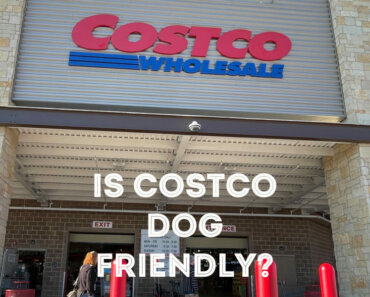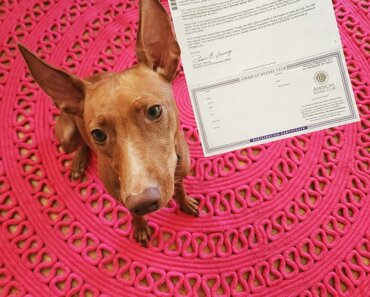Dogs have a much shorter, faster digestive tract than humans. That’s why they tend to poop more often than people, and you’ll often spot undigested pieces of food in their poop that you have just fed them a few hours earlier.
But what about when your dog just isn’t pooping? Or their poop is dry, crumbly, or difficult to pass?
Constipation could be a sign of a blockage or other serious issue, and it may require veterinary attention. However, it’s often something you can deal with at home.
If your dog seems lethargic, if they’re also vomiting, if you notice signs of blood in their vomit or stool – it can look like dark coffee grounds – see your vet or an emergency veterinary clinic if your usual vet is not open.
But if your dog just isn’t pooping much, or if their poop is dry or hard to pass, you can usually fix the issue with some simple dietary changes.
Why Dogs Get Constipated
A sudden change in your dog’s bowel habits may come from eating something weird. If you or your dog has long hair, they may ingest it and have trouble passing it.
Your dog may also get constipated when you change them to a new food, especially if their old food was high in corn, peas, or another fibrous ingredient, and their new food is higher in protein.
Constipation is common in dogs who are raw fed, or kibble-fed dogs who eat some raw snacks, if they have had too much bone content.
How Dry Is Too Dry For My Dog’s Poop?
It’s actually not a bad thing if your dog’s poop is a little dry. You want it to be firm enough that it does not leave residue behind after you pick it up. It should not be like toothpaste or soft serve (So sorry for those mental images.)
But if it’s coming out in pellets, or dry and dusty, that’s too dry.
Prevent Constipation Through Diet
You can simply add water to your dog’s food to help soften their stools and make them easier to pass.
If you feed kibble, you can let it soak for at least five minutes. You don’t need a lot of water, just enough to make a hydrating gravy.
Adding water to your dog’s dry food makes it easier to digest and can also help your dog feel more full.
Adding Fiber
You can also add sources of fiber to your dog’s diet with fresh foods. Normally vets recommend canned pumpkin puree to loosen stools, but it’s not the only source of fiber you can offer your dog.
Strawberries, blueberries, carrots, green beans, and watermelon are just a few of the foods you can give your dog.
You can also give your dog fiber supplements like psyllium seed husk, just make sure it’s a one-ingredient supplement with no artificial sweeteners, as many are toxic to dogs.
Slippery elm bark powder is another great supplement you can give.
Chia seeds and flax seeds are also good for constipation in dogs.
Of course, you do not want to try all of these things at once – you’ll give your dog an awful stomachache. Pick just one, whatever is most accessible, and give it a try.
Lubricating The Bowel
Along with fiber, you can also give your dog an oil to help soften stools.
Olive oil or coconut oil can work. Mix either with a little bit of food.
Keep in mind that a little goes a long way, and overdoing the laxatives, be it oil or fiber, can cause vomiting and stomach cramps. Give it time to work – wait 12 hours before increasing the dose, and call your veterinarian immediately if your dog is in distress.



























